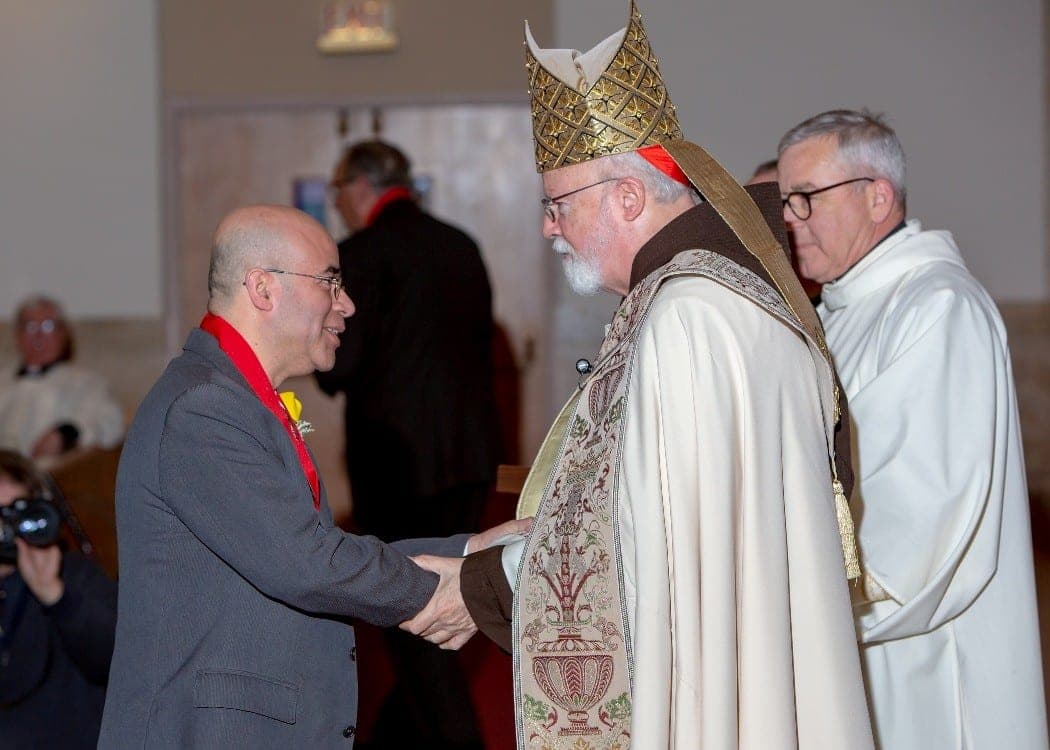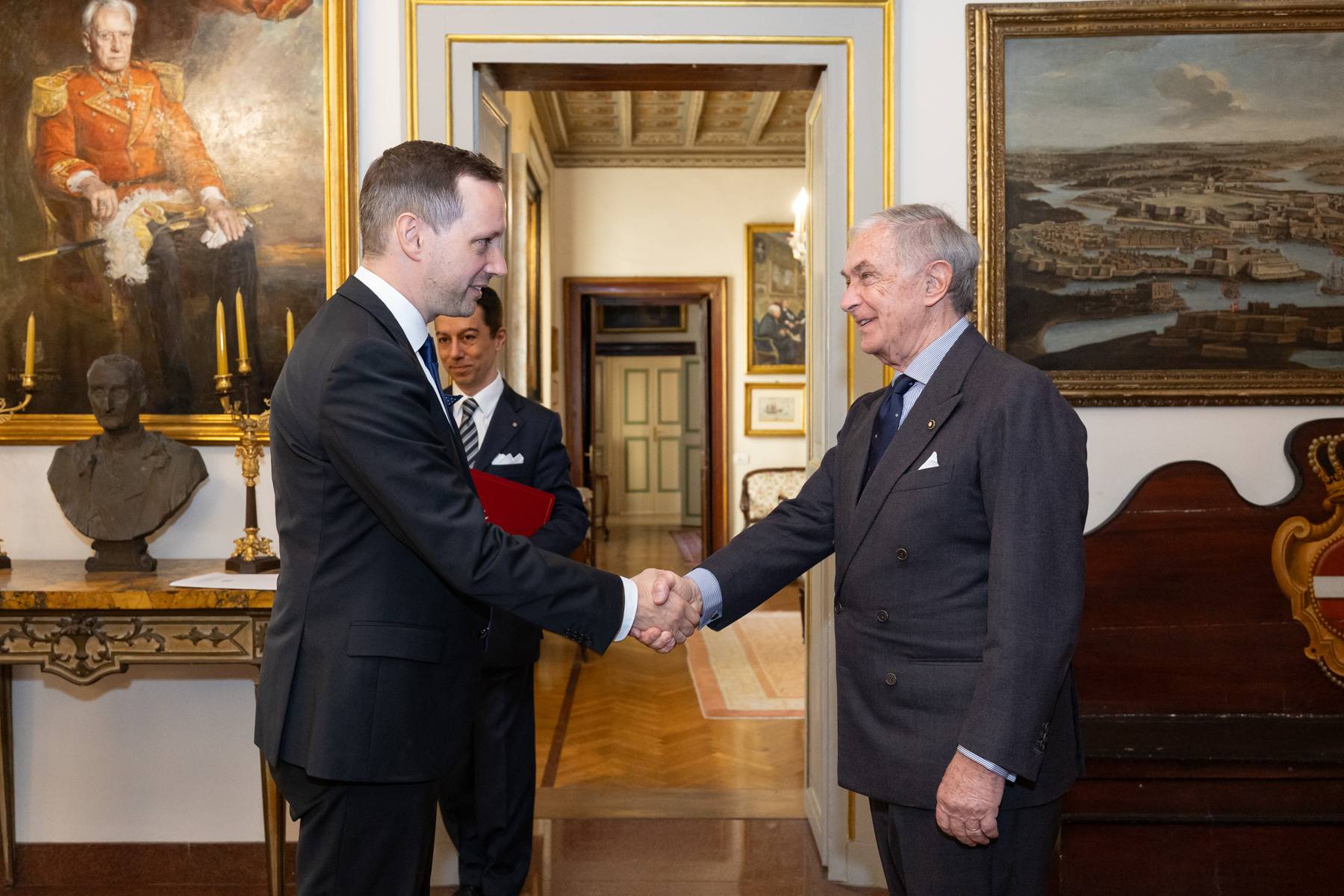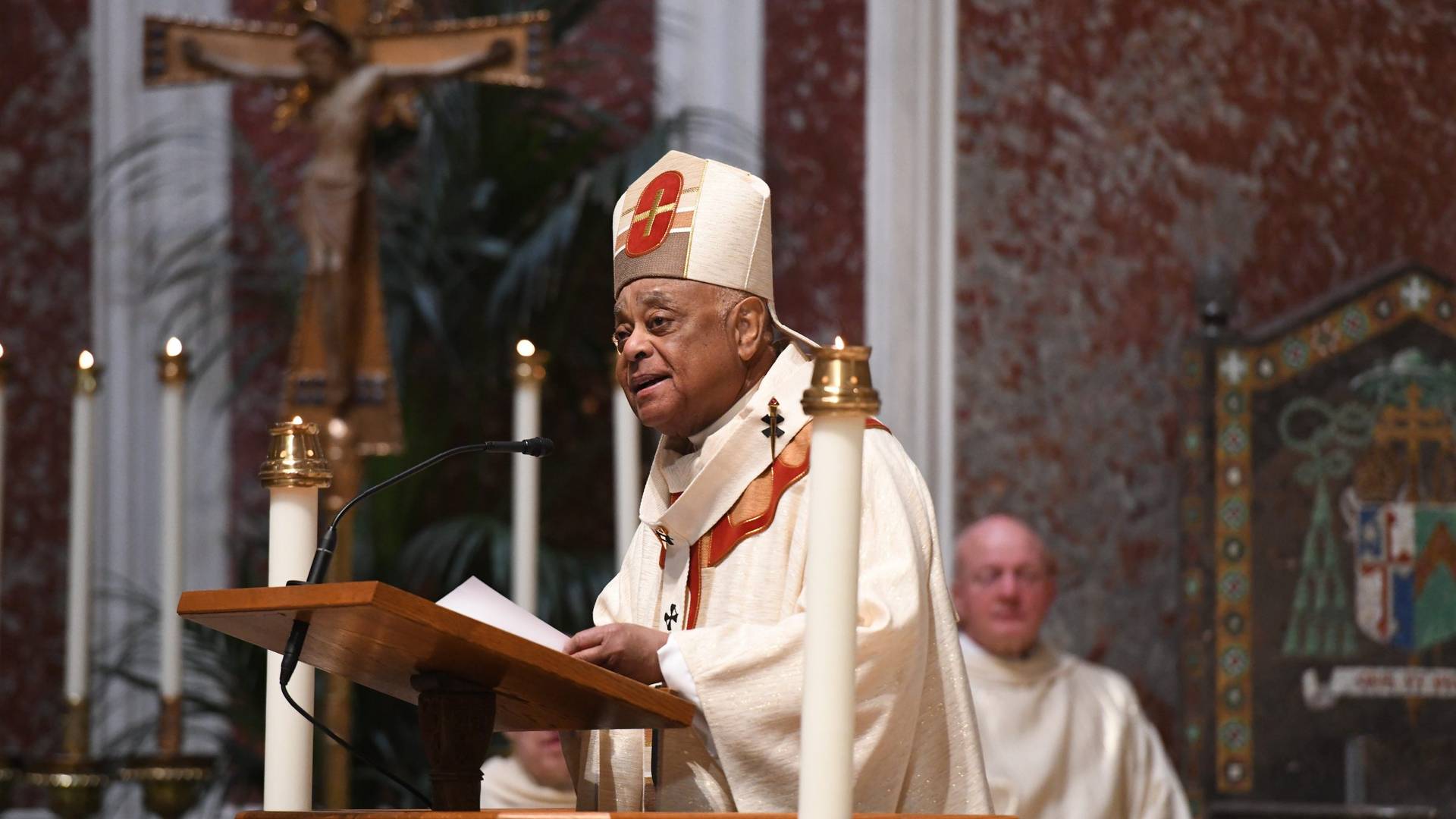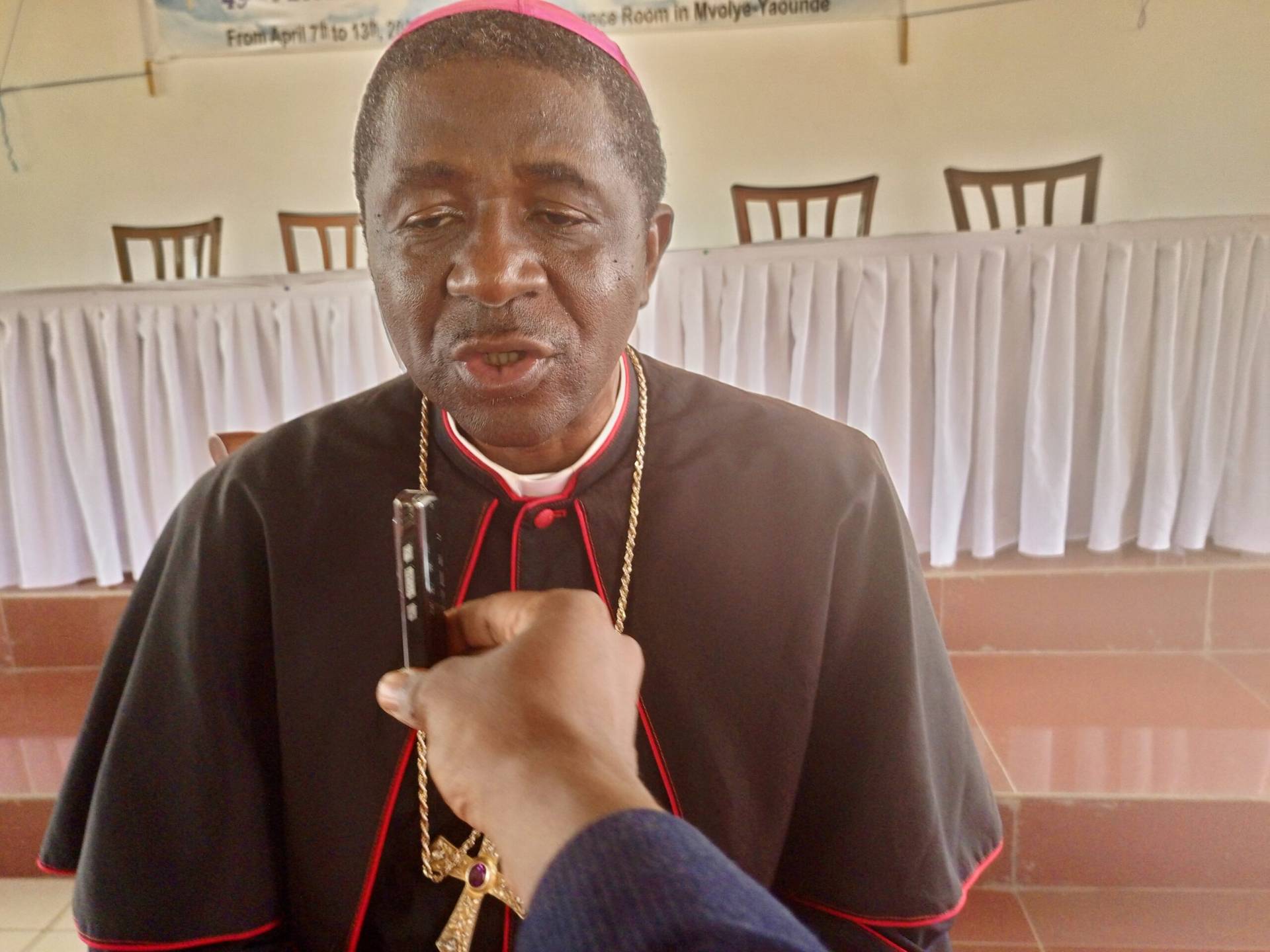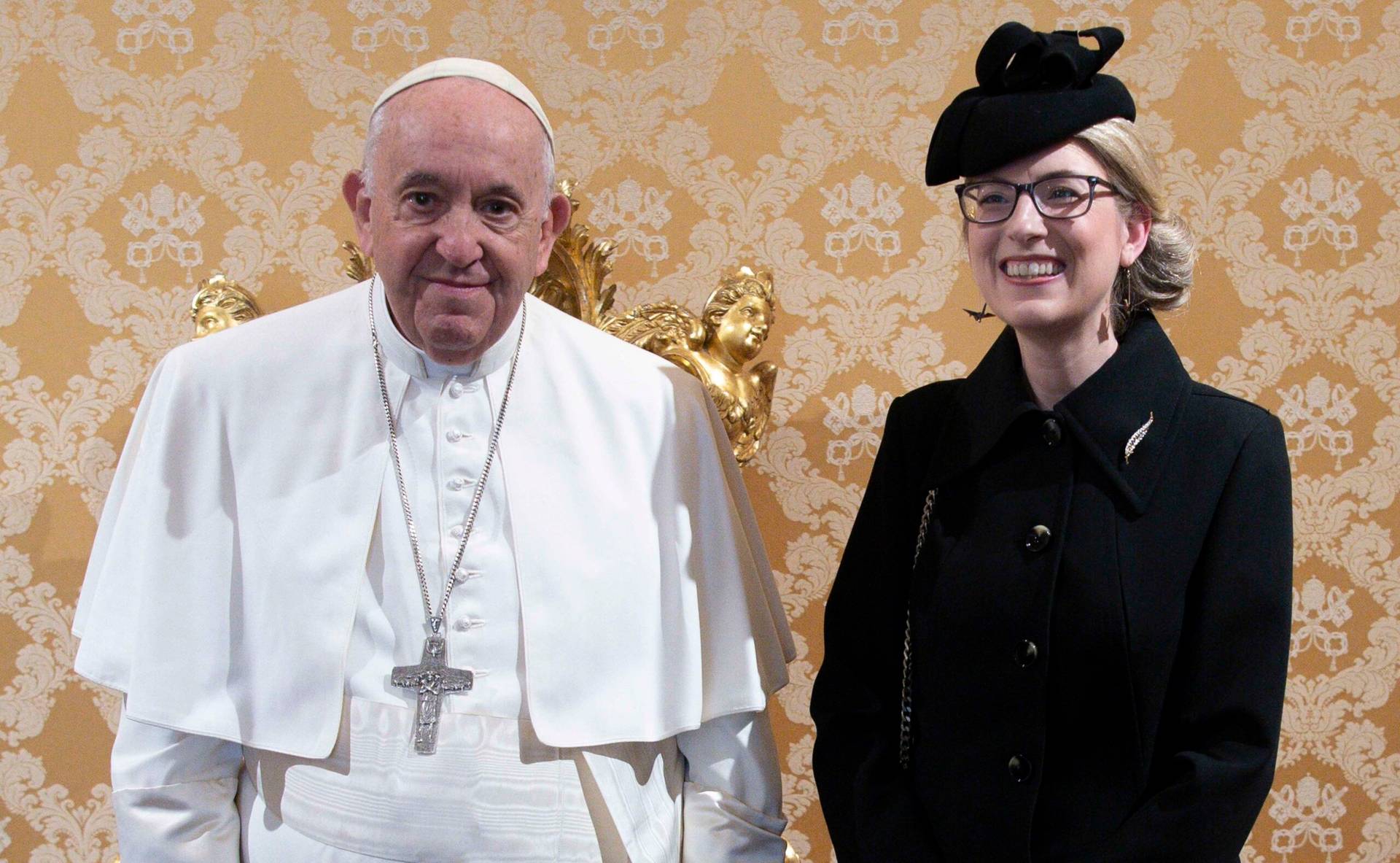[Editor’s Note: Hosffman Ospino is an associate professor of Hispanic ministry and religious education at Boston College. Cardinal Seán P. O’Malley of Boston presented him with the 2018 Cheverus Medal, recognizing those who quietly and consistently make significant contributions to the life of the Church in the archdiocese. Ospino spoke to Charles Camosy.]
Camosy: Cardinal Sean P. O’Malley recently presented you with the Cheverus Medal in recognition for your service to the Church in the Archdiocese of Boston. You also received other awards this year and have accumulated quite a collection of honorary hardware! What do these recognitions mean for you as a theologian?
Ospino: I am profoundly grateful to the people and organizations that have recognized the value of my work as a theologian to our church this year and before. Whether affirming the importance of the research and writing that I advance or the opportunity to serve others, these awards mean a lot, personally and professionally.
Some people may perceive theologians as intellectuals who spend our lives in disconnection from the everyday realities of faith communities or people whose work matters only in classrooms, libraries and academic meetings. That is a major misconception. The vocation of the theologian in the Church is inherently ecclesial and public. We advance our scholarship as women and men of faith reading the signs of the times, listening to the questions that our communities are asking, and assessing those urgent dynamics that affect people in our immediate society. We study those signs, questions and dynamics through the lens of the Scriptures and the best of our faith tradition, we unpack them in dialogue with different fields of knowledge, then offer important analyses that aim at shaping life in our families, churches, neighborhoods, nation and even the world.
My work explores how faith and culture are in mutual dialogue, sometimes in tension. It is impossible to speak of catechesis, evangelization or theology in the abstract. We are always situated within a specific cultural context. The more we know about those cultural contexts, the more effective we can be in our ecclesial service. I look particularly at how Hispanic Catholicism enriches the life of the Church in the United States, theologically and ministerially.
This is why our Catholic faith communities must cultivate the vocation to theological life. We rarely talk about this kind of vocation in our churches, which is a major oversight. Whether teaching at a university or a seminary or writing books that help us all to understand the faith in better ways or advising a group, theologians enrich the life of the Church. This is how I see my work and I believe that this is why it has received some recognition. The theologian is not perfect. I certainly am not perfect! Like everyone else, theologians are called to encounter the Jesus Christ and experience conversion every day, as Pope Francis reminds us.
You were actively involved for several years in the process of the Fifth National Encuentro of Hispanic/Latino Ministry that hosted its main gathering this past September in Dallas. It was covered here at Crux, but what can you tell us about this meeting as an insider? What were your most important takeaways?
I would say that the V Encuentro process has been an opportunity to name the obvious with a renewed sense of urgency: Catholicism in the United States is being profoundly transformed by Hispanics. Yes, this is obvious, especially in the South and the West as well as in the largest cities of our nation. However, many sectors in our church continue to see Hispanic Catholics as newcomers or people who are passing. They miss the fact that two-thirds of Hispanics are U.S. born. Many of our Catholic educational institutions remain slow in seizing the moment to serve the needs of this important population. There are eight million school-age Hispanic Catholics ready to be welcomed in our Catholic schools, yet we continue to struggle with enrollment and keep closing these important institutions.
We need to be more creative and more prophetic as a church in this area. We need to do much more to foster Hispanic ecclesial leaders at all levels in the Church in this country. Many, if not most, of the next generation of Catholic leaders in the Church in the larger society will likely come from the Hispanic community. What are we doing to make sure that this is the case and that these leaders are firm in their faith and are adequately prepared?
There is little of novelty in this. The Encuentros, starting in 1971, have named these realities in many ways during the last half a century. The V Encuentro process did it again, building on important research available, and at a time when nearly 60 percent of Catholics younger than eighteen are Hispanic. It is precisely this last number that adds a sense of urgency to the reflections emerging from the V Encuentro process: the Hispanic Catholic population is very young; most young Catholics in the U.S. are Hispanic, but we are doing little to really engage them. Our young Hispanic Catholics are drifting away.
I do not know if I have much to say from the perspective of an “insider,” mindful that the process was very open, involving hundreds of thousands of Catholics at all levels of church life in the country. Yet, two things left me wondering. One, I was surprised at the resistance on the part of some pastoral leaders, ordained and non-ordained, and of some faith communities to even consider any form of reflection about how to best serve Hispanics, especially immigrants. I perceived an element of tiredness among some of these leaders. Instead of welcoming the presence of a young and vibrant population that requires evangelizing attention in different languages, many seem to prefer a retreat into comfortable corners and routines. Some actually exhibited attitudes that echoed the negative sociopolitical feelings that divide our society today.
Two, in the last three years I visited dozens of dioceses and listened to countless young Hispanic Catholic people. I am truly encouraged by the high level of sophistication that these young women and men exhibit when talking about their lives and their Catholic faith. Remarkable! Pastoral leaders and ministerial structures need to catch up with these Catholics. In many places they are ignored or underestimated. Many of them may not have college degrees or live in circumstances where their voices have an easy pathway onto the decision-making tables in our church. However, young Hispanic Catholics have much to say and the entire Catholic community in the U.S. will do well to embrace their wisdom. We must create the spaces to listen to them and engage them seriously. If we do not do it, they will go somewhere else.
What is next for Roman Catholics in the United States after this meeting?
Two words: Do something. There is no doubt that we are in a historical moment when to be Catholic in the United States is not easy, especially at the institutional level. However, struggles such as the scandals associated with sexual abuse by clergy, the loss of institutional credibility, structural downsizing in some parts of our geography, inability to grow structures because of lack of resources in others, and ideological polarization, among others, though daunting cannot paralyze us. Catholics have a mission to move forward: Bringing the Good News of Jesus Christ to all the corners of our nation. This demands that we accompany and nurture everyone who wants to grow in their Catholic faith. Millions of Hispanic Catholics of all ages want to do that.
It would be disappointing if the energy generated by the V Encuentro process were reduced to a series of bureaucratic proceedings coming from an office or that the process as such were reduced to a rally last September that gathered people from around the country who felt good, then went back to life as usual. Like politics, ministry is local. It is particularly in dioceses and parishes where the V Encuentro needs to engender life.
I think that bishops have an important responsibility in this area in their dioceses. They need to gather any resources and conclusions emerging from the process, make sure that all diocesan personnel becomes familiar with them, and monitor that new initiatives respond to the issues and needs identified during the V Encuentro. Bishops should also encourage pastors and other pastoral leaders in their dioceses to continue the reflection. In fact, it would be great that dioceses repeated the process at least once every two years for a decade. I coordinated the team developing the methodology for the process. I am convinced that if used regularly, there will be many fruits.
Now, I understand that bishops have many things on their minds. In any case, the least they could do at this particular point, nonetheless, is to give diocesan offices of Hispanic ministry, or their equivalents, sufficient financial resources and when possible more pastoral authority to reach out to Hispanic Catholics, especially the young. Pastors should do likewise at the parish level.
I don’t know where you find the time, but you just launched a major new national study on Hispanic Catholic vocations. What is the focus of this study? What do you hope to learn?
This study on Hispanic Catholic vocations follows two efforts that I have lead in recent years: the National Study of Catholic Parishes with Hispanic Ministry and the National Survey of Catholic Schools Serving Hispanic Families.
These two studies revealed clearly that one key to strengthening the voice of Hispanic Catholics in parishes, dioceses, educational institutions, and other ecclesial structures is fostering vocations to ecclesial life. In this study I will narrow the focus on Hispanic priests, sisters, brothers, and permanent deacons. I hope to have the resources and energy later to explore the vocation to lay ecclesial ministry among Hispanic Catholics, yet one thing at a time.
Catholic immigrants in the past were able to solidify their communities as they encouraged, mentored, and supported vocations to the priesthood and religious life. These leaders in turn inspired other leaders in their communities. Hispanic Catholics have followed a different pathway in this regard. Despite the large numbers of U.S. born Hispanics (i.e., two-thirds), more than 80 percent of Hispanic priests and more than 90% of Hispanic vowed religious are immigrants. The presence of Hispanics in programs of ministerial formation remains small and so do the number of faculty and administrators in these institutions.
In this study I want to take the pulse of what it means to be a Hispanic Catholic person discerning a vocation to the priesthood, religious life and permanent diaconate in the United States. I want to identify challenges and opportunities, obstacles and pathways. It is a large topic, yet my goal is to generate helpful conversations, as it has been the goal with my previous studies. I hope to conclude this study on Hispanic vocations toward the end of 2020. Stay tuned!
You also find time to write a lot. Where can Crux readers read your stuff?
My love for writing is stimulated by my passion for reading a lot about many topics and by a commitment to listening to others. I like facilitating gatherings that bring together the best minds and people who have many opinions. It is the best way to learn. The classroom is one of my favorite spaces. I always learn a lot from my students. The best place at this point to learn about my publications and current projects is my faculty page at Boston College.
